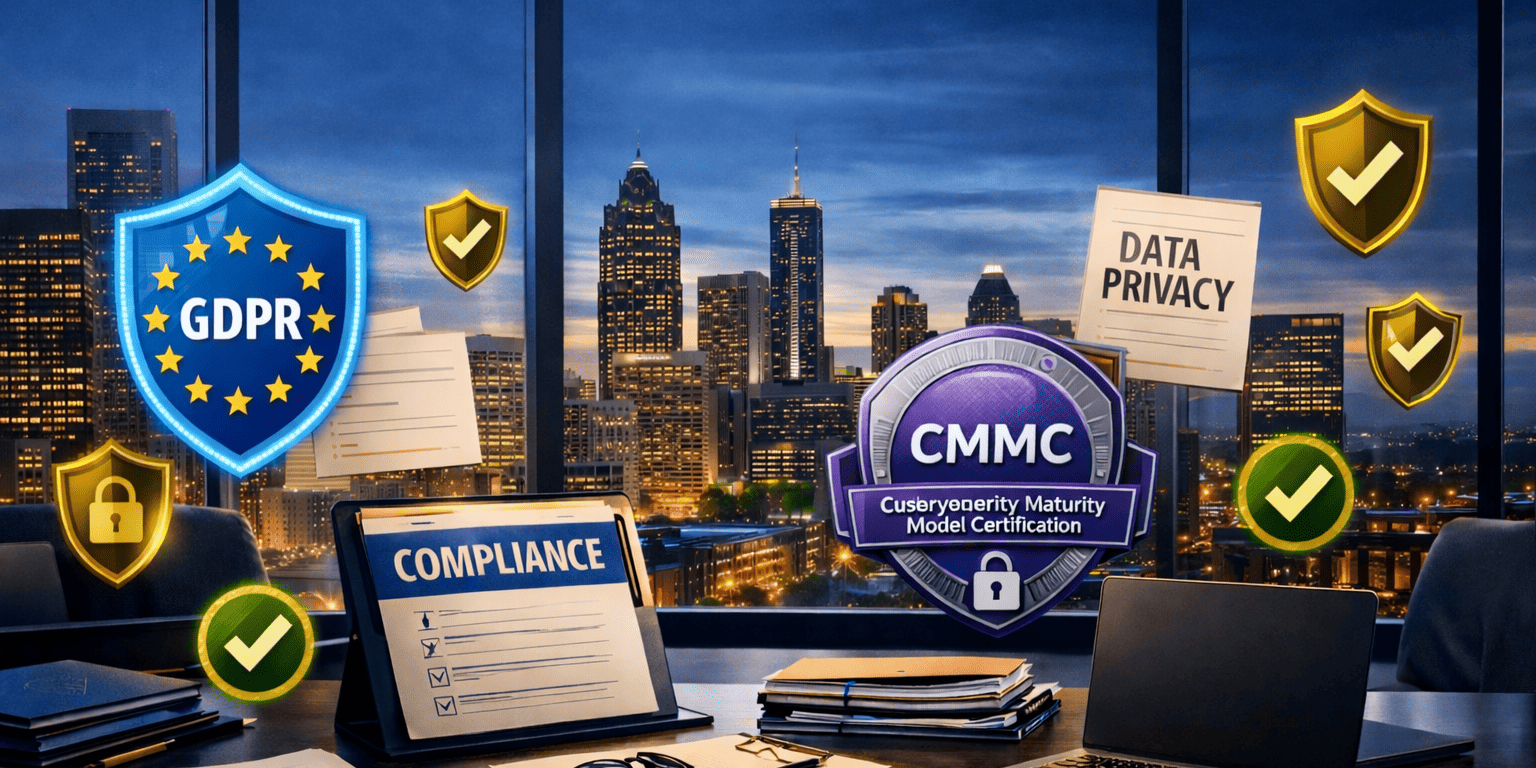Cyber Insurance: 2025 Changes Metro Atlanta Must Know
In the heart of Metro Atlanta, a midsized marketing firm in Decatur thought they were prepared for anything. They had invested in cybersecurity insurance years ago, paying premiums without fail. But when a sophisticated phishing scam led to a major data breach in February 2025, their insurance claim was shockingly denied. The reason? Their cybersecurity practices had not kept pace with evolving policy requirements. They missed a crucial update: mandatory endpoint detection and regular employee cybersecurity training. The result? Over $200,000 in direct damages, a serious hit to their reputation, and a hard lesson learned.
Unfortunately, their story is becoming increasingly common across Metro Atlanta, from Buckhead boutiques to Alpharetta tech startups. Cyber insurance in 2025 is no longer a simple safety net; it is a carefully conditional contract. Businesses must meet strict cybersecurity standards not just at renewal, but continuously.
Why Cyber Insurance Standards Are Tougher in 2025
The cybersecurity threat landscape has exploded. A 2024 report from Georgia Tech highlighted a 52% increase in ransomware attacks in Georgia alone. Insurers, faced with unsustainable losses, have responded by tightening eligibility requirements, raising premiums, and inserting strict compliance obligations into their policies.
Today, Metro Atlanta businesses can expect during policy renewal:
- Exhaustive cybersecurity risk assessments
- Proof of multifactor authentication (MFA) across systems
- Deployment of endpoint detection and response (EDR) solutions
- Regular, documented employee cybersecurity training
- Formal incident response and disaster recovery plans
- Evidence of vulnerability management and patching practices
Neglecting these elements can lead to coverage denials or significantly higher premiums.
Learning from Decatur: Compliance Cannot Be an Afterthought
The Decatur marketing firm assumed basic antivirus software and employee passwords were enough. When their insurer reviewed the breach, gaps emerged: no MFA for key accounts, outdated software, and no formal incident response plan. Their “cyber hygiene” had been adequate in 2020 but fell far short of 2025 standards. The insurer pointed to their policy’s new conditions, updated during the last renewal, as grounds for denial.
How to Ensure Your Cyber Insurance Works When You Need It
Start with a full review of your existing cyber insurance policy. Pay special attention to any new endorsements or conditions added at renewal. If you need help translating technical jargon, an IT support partner like AlphaCIS can bridge the gap.
Next, shore up your defenses:
- Implement MFA: Every remote access point, cloud application, and email account must have MFA enabled.
- Maintain Regular Patching: Apply updates for operating systems, applications, and firmware without delay.
- Adopt Advanced Endpoint Security: EDR tools are a must-have, not a nice to have.
- Train Your Team: Host frequent cybersecurity awareness sessions and conduct phishing simulations.
- Create and Test an Incident Response Plan: Being prepared dramatically improves your resilience.
- Secure and Test Backups: Offline, encrypted backups should be available and routinely tested.
In our experience at AlphaCIS, many Metro Atlanta businesses underestimate the importance of documentation. If you cannot prove you have these safeguards in place, insurers may assume you don’t.
The Bigger Picture: Protecting Your Business Reputation and Continuity
An insurance claim denial is only part of the risk. Businesses also face regulatory fines, client lawsuits, and irreversible brand damage after a cyberattack. For instance, a Roswell based healthcare provider saw not only their insurance claim denied, but also faced steep HIPAA penalties because they lacked proper breach notification protocols. It took them years and thousands in legal fees to recover their standing.
The New Cyber Insurance Mindset: Proactive, Not Reactive
Forward-thinking businesses now see cyber insurance as just one piece of a holistic cybersecurity strategy. Insurers reward those who invest proactively with lower premiums and more comprehensive coverage.
Partnering with a managed IT services firm like AlphaCIS helps ensure you stay compliant year round, not just when it is time to renew. We offer vulnerability assessments, managed security services, employee training programs, and disaster recovery planning all tailored for Metro Atlanta’s small business community.
Your Next Steps Before Renewing
Treat your upcoming renewal as an opportunity. Assess your cybersecurity maturity. Close any gaps. Document your efforts. Engage with experts who understand both cybersecurity and the insurance landscape.
Cyber threats are not slowing down, and neither are insurance requirements. AlphaCIS stands ready to help you stay secure, compliant, and fully covered when it counts.
Ready to protect your business with confidence? Schedule a no pressure discovery call with AlphaCIS today. Let’s build a cybersecurity foundation that keeps your business, your clients, and your future safe.

Dmitriy Teplinskiy
I have worked in the IT industry for 15+ years. During this time I have consulted clients in accounting and finance, manufacturing, automotive and boating, retail and everything in between. My background is in Networking and Cybersecurity



